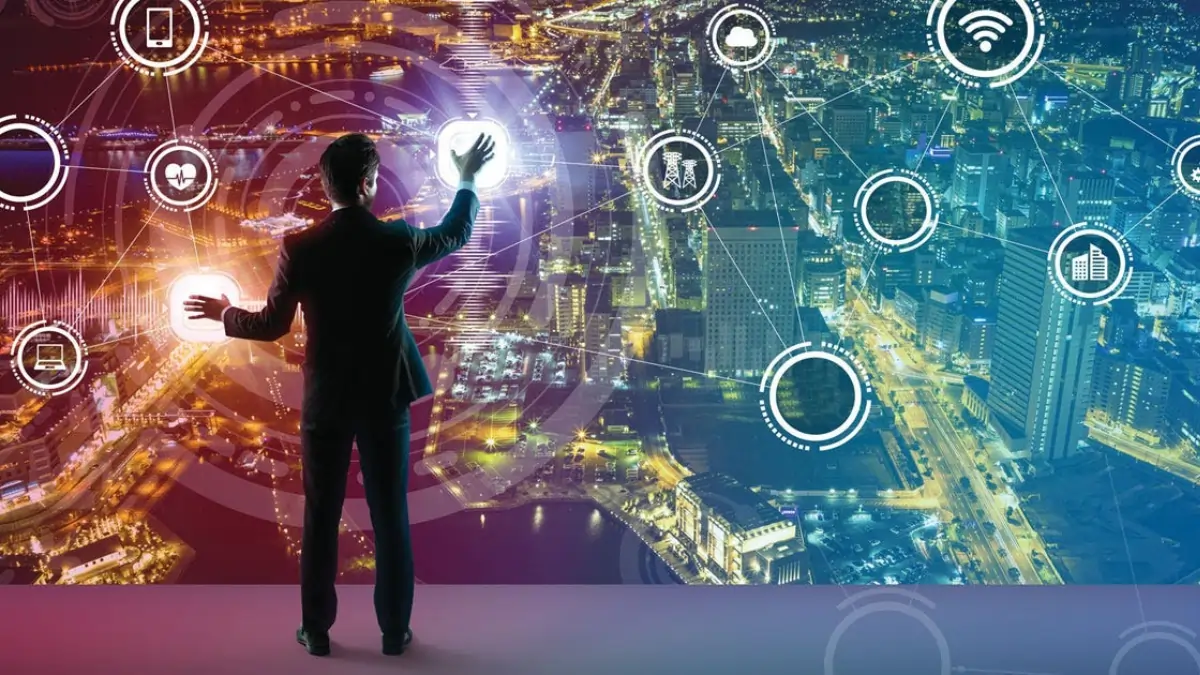The Future of Technology As the world moves toward an era defined by rapid innovation, technology continues to transform how we live, work, and interact. Over the next decade, advancements in artificial intelligence, quantum computing, IoT, and renewable energy promise to revolutionize industries and unlock new possibilities. This article explores the key trends driving technological progress, their anticipated impacts, and the associated costs.
Artificial Intelligence: Expanding Human Potential

What AI Holds for the Future
AI will evolve from automating tasks to enhancing creativity and decision-making across sectors. From personalized healthcare to autonomous vehicles, AI is poised to become an integral part of our lives.
Key Developments:
- Generative AI: AI tools will create human-like content, transforming entertainment and business.
- Healthcare Innovations: AI will enable faster diagnoses and tailored treatments.
- Autonomous Systems: Self-driving cars, drones, and robotic assistants will redefine mobility.
Estimated Costs:
- AI model development: $100,000–$1M per project.
- AI healthcare solutions: $50,000–$150,000 per application.
- Autonomous vehicle AI systems: $5,000–$20,000 per unit.
Quantum Computing: A Leap Beyond Traditional Systems

How Quantum Computing Will Transform Industries
Quantum computing will solve problems beyond the scope of classical computers, reshaping fields like cryptography, logistics, and pharmaceutical research.
Key Developments:
- Cryptography: Quantum systems will redefine cybersecurity with quantum-resistant encryption.
- Drug Discovery: Simulating molecular interactions for faster, cost-effective drug development.
- Logistics Optimization: Real-time solutions to complex supply chain challenges.
Estimated Costs:
- Quantum computer acquisition: $10M–$50M per unit.
- Cloud-based quantum services: $10,000–$50,000 annually.
Internet of Things (IoT): Interconnecting the World
IoT in the Next Decade
IoT will become ubiquitous, powering smart cities, homes, and industries. With advancements in 5G and edge computing, IoT devices will operate with greater efficiency and reliability.
Key Developments:
- Smart Cities: IoT will optimize energy consumption, traffic flow, and public safety.
- Wearable Tech: IoT wearables will provide advanced health monitoring and productivity insights.
- Industrial IoT (IIoT): Factories will leverage IoT for predictive maintenance and automation.
Estimated Costs:
- Smart home IoT setup: $5,000–$20,000 per home.
- Smart city infrastructure: $10M–$50M per city.
- Wearable IoT devices: $100–$500 per unit.
Blockchain: Beyond Cryptocurrency

Blockchain’s Expanding Role
Blockchain will revolutionize transparency, security, and efficiency in industries such as finance, supply chain, and healthcare.
Key Developments:
- Decentralized Finance (DeFi): Blockchain will streamline financial transactions.
- Supply Chain Management: Ensures traceability and authenticity in global trade.
- Healthcare Records: Secure, patient-controlled medical data on blockchain platforms.
Estimated Costs:
- Supply chain blockchain solutions: $50,000–$500,000 per system.
- Healthcare blockchain systems: $100,000–$1M per facility.
- DeFi platform development: $100,000–$500,000 per platform.
Renewable Energy Technologies

Powering a Sustainable Future
The next decade will witness significant advancements in renewable energy, improving efficiency and accessibility while reducing environmental impact.
Key Developments:
- Energy Storage: Innovations like solid-state batteries will enhance energy storage capabilities.
- Green Hydrogen: Hydrogen fuel cells will provide clean alternatives for industrial energy.
- Smart Grids: AI-powered grids will balance energy supply and demand efficiently.
Estimated Costs:
- Solar energy installation for homes: $10,000–$30,000 per setup.
- Energy storage systems: $5,000–$20,000 per unit.
- Green hydrogen production plants: $1M–$5M per facility.
Extended Reality (XR): Blending Realities

What XR Means for the Future
Extended Reality (XR), which encompasses Virtual Reality (VR), Augmented Reality (AR), and Mixed Reality (MR), will transform industries such as education, retail, and entertainment.
Key Developments:
- Immersive Training: VR simulations for healthcare, aviation, and military training.
- AR in Retail: Allowing customers to try products virtually before purchase.
- Collaborative Workspaces: XR platforms for immersive remote teamwork.
Estimated Costs:
- VR systems and headsets: $500–$2,000 per unit.
- AR app development: $50,000–$300,000 per application.
- XR training modules: $100,000–$1M per module.
Biotechnology: Engineering a Better Future
Biotechnology’s Role in Innovation
The Future of Technology Biotechnology will lead to breakthroughs in medicine, agriculture, and sustainability through advancements in genetic engineering and synthetic biology.
Key Developments:
- CRISPR Technology: Precise gene editing for personalized medicine.
- Agricultural Biotechnology: Crops engineered for resilience and higher yields.
- Synthetic Biology: Development of artificial organisms for industrial applications.
Estimated Costs:
- Gene editing research: $1M–$10M per project.
- Agricultural biotech solutions: $500,000–$5M per initiative.
- Synthetic biology platforms: $100,000–$500,000 per system.
Economic Impact of Emerging Technologies

| Technology | Estimated Revenue Impact (USD) | Key Benefits |
|---|---|---|
| Artificial Intelligence | $1.2T+ annually by 2030 | Automation, personalized solutions |
| Quantum Computing | $100B+ annually by 2030 | Advanced simulations, problem-solving |
| Internet of Things (IoT) | $1.5T+ annually by 2030 | Connectivity, efficiency |
| Blockchain | $500B+ annually by 2030 | Transparency, security |
| Renewable Energy | $2T+ annually by 2030 | Sustainability, clean energy |
Shaping the Future: A Decade of Unprecedented Innovation
Technology as a Catalyst for Progress
The Future of Technology The next decade will be defined by technological breakthroughs that enhance efficiency, drive sustainability, and improve quality of life. While challenges such as cost, accessibility, and ethical considerations remain, these innovations promise to reshape industries and create opportunities.
Investing in emerging technologies like AI, quantum computing, IoT, and renewable energy will pave the way for a smarter, more sustainable future. As these trends continue to evolve, they hold the power to not only transform industries but also redefine human potential and connectivity. The future of technology is here, and it is boundless.
